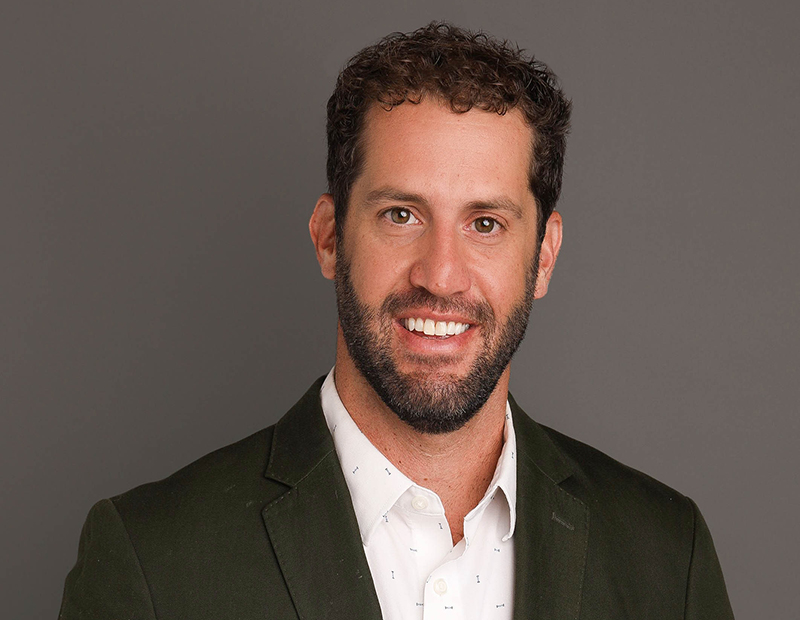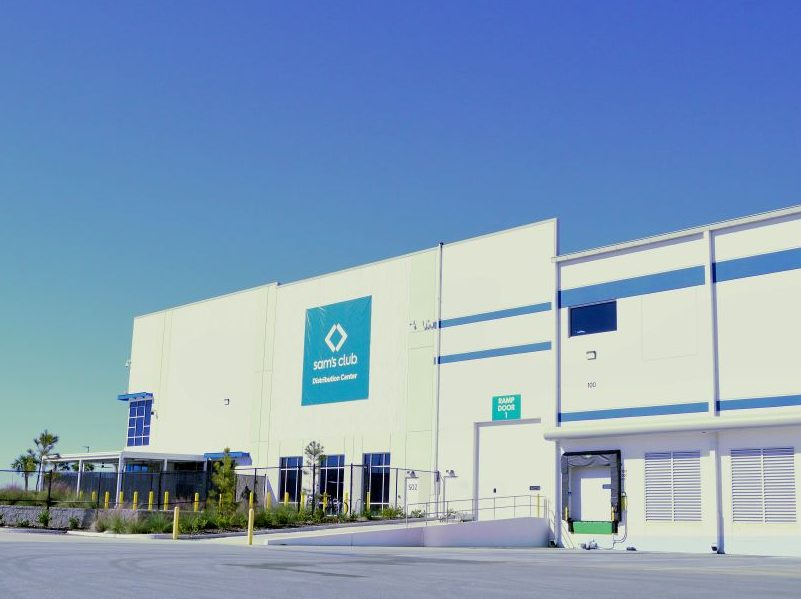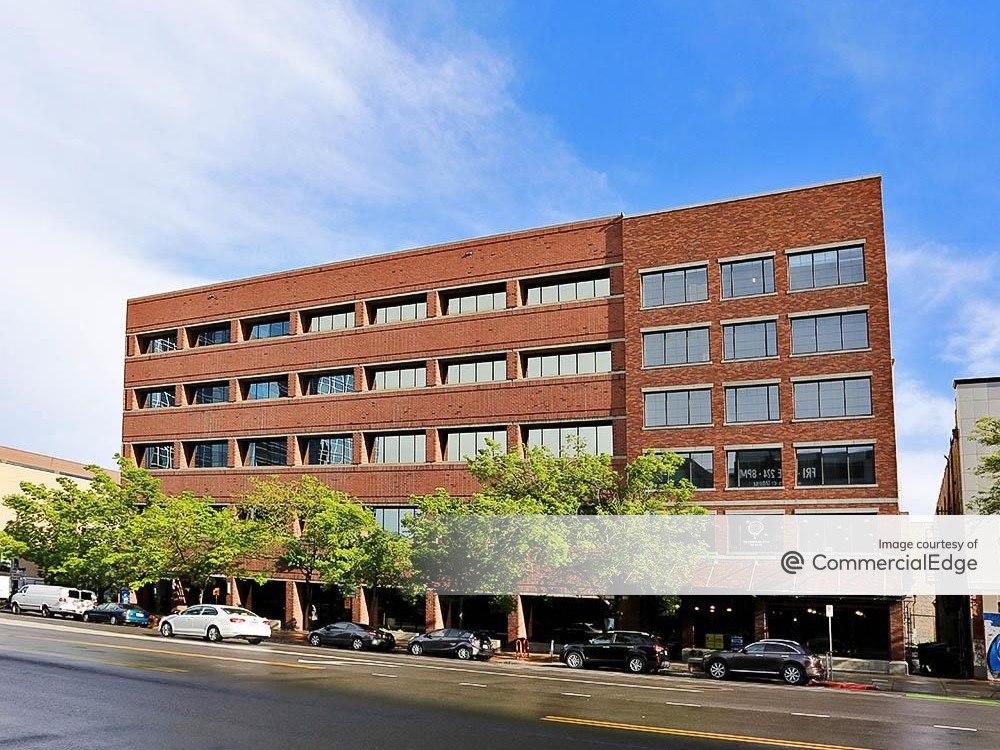Supporting Small Businesses, the Lifeblood of the US Economy
Baceline Investments’ Brian Capstick dives into how tenants at the company’s neighborhood shopping centers learned to cope with economic fallout this year.

Brian Capstick, Executive Vice President, Baceline Investments. Image courtesy of Baceline Investments
The coronavirus outbreak has seriously impacted the U.S. economy and triggered the most significant fiscal response to an economic downturn since the Great Depression. The $3 trillion stimulus package has helped many industries tackle the pandemic-induced recession. Beyond that, businesses had to be creative and quickly adapt their strategies to soften the blow of the crisis.
In the interview below, Brian Capstick, executive vice president of operations at Baceline Investments—a company that targets necessity-based neighborhood shopping centers across the U.S.—examined how small businesses adapted to the current economic climate and unveiled some of the successful strategies that helped his tenants cope with the COVID-19 crisis.
READ ALSO: Retail Crisis Hits Small Shops the Hardest
How has the pandemic impacted your portfolio and operations?
Capstick: Operationally, we have maintained our standard approach. Portfolio-wide, we have lost a handful of tenants during the pandemic. However, we have managed to offset those vacancies with a similar number of signed new leases.
As the pandemic hit, we created a Tenant Pulse team that calls each tenant weekly to understand their challenges and works with them to find solutions. As a result, we are seeing more renewals and new lease signings than national REITs because of this strategy.
How has the COVID-19 crisis affected small vs. large businesses across your portfolio?
Capstick: More than an impact being seen with small vs. large businesses, we are seeing impact shown in relation to how businesses are adapting to the given situation with their marketing and strategies.
For example, many mom-and-pop retail stores and restaurants are getting extremely creative with their strategies for staying open and attracting customers, and many are having their best quarters. These independent tenants are among the most resilient and entrepreneurial business owners and have much more to lose than a national chain that can afford to close some of their locations. Small, neighborhood stores such as liquor stores, delivery and carryout-focused food concepts, and nail and hair salons have made quick comebacks.
What are some new trends small businesses have embraced since the coronavirus outbreak?
Capstick: COVID-19 has accelerated trends already in place in retail in terms of convenience of fulfillment. Neighborhood locations are more important to customers. More medical/dental tenants want to service customers in their neighborhoods instead of in expensive medical buildings, as people commute to work less and work from home. Medical service providers strengthen portfolios because of their tendency to pay higher rates and sign longer-term leases.
Customers are now less likely to go to a mall or big-box store to buy all their goods and prefer to go to a neighborhood nail salon or liquor store for many things that they still prefer to buy in person versus online. Consumers want, more than ever, to obtain necessary items and services within 3 miles of their home and to patronize a local merchant. People still want to connect with their community at smaller, neighborhood retail locations. This is Baceline’s entire business strategy, to focus on these small-format, unanchored, neighborhood convenience centers that are the backbone of America.
Tell us about the strategies that small businesses across your shopping centers implemented to stay afloat during the pandemic.
Capstick: Businesses are adapting in several different ways. Restaurants are using more delivery services, through third-party—GrubHub, Uber Eats etc.— and in-house delivery and curbside pickup. Retail stores are adapting and developing their online stores and online presence. Services are carefully coordinating appointments and taking sanitation seriously to help ensure they can remain open.
Our team has worked with tenants to give them a variety of resources to market their businesses, including “we’re open” signs, as well as personal protective equipment and sanitation to support their shift in business strategies.
In your opinion, how effective was the Paycheck Protection Program? What other types of relief programs would be beneficial to small businesses?
Capstick: This program was critical for small businesses. Many of these businesses, while they may have some level of financial padding, are not or cannot prepare for the severity that the 2020 pandemic caused. This program gave these businesses the chance to adapt and readjust their businesses while managing the implications of COVID-19.
Additional relief programs would be huge for these businesses. Many small businesses we talk to want a more predictable package targeted to business-operating support and driving customers versus payroll-based support. These businesses are the roots of our country and they need help to keep supporting our economy.
READ ALSO: Retail Trends That Will Remodel the Industry in 2020 and Beyond
What can you tell us about rent collection across your portfolio? How did you tackle delicate situations such as a tenant having difficulty keeping up with rent obligations?
Capstick: We have taken the time to work with tenants individually regarding rent. While it is important to us that we collect rent so we can maintain these neighborhood shopping centers, our goal is long-term health for the centers and the businesses that call the centers home. When a tenant needed assistance during hardship, we focused on forming a long-term plan that works for both them and us.
We’ve worked together with each tenant creatively to abate rent, in some cases clear debt, and restructure leases to strengthen their businesses. As a result, Baceline is seeing more renewals and new lease signings because of this strategy.
What lessons have you learned so far from this pandemic and how are you planning to implement them going forward?
Capstick: The power of adaptability. From the ability of tenants to adapt their business models with literally zero notice, to the team at Baceline that dropped everything within their normal set of duties and shifted to form a Tenant Pulse team overnight. The power of being able to shift has paid off in allowing us to work together to overcome challenges during this pandemic.
We plan to keep our Tenant Pulse team in place to continue to work in partnership with our tenants and continue to strengthen this stable neighborhood retail real estate center, profiting from cap rates nearly double that of anchored properties and even luring tenants from nearby centers.








You must be logged in to post a comment.